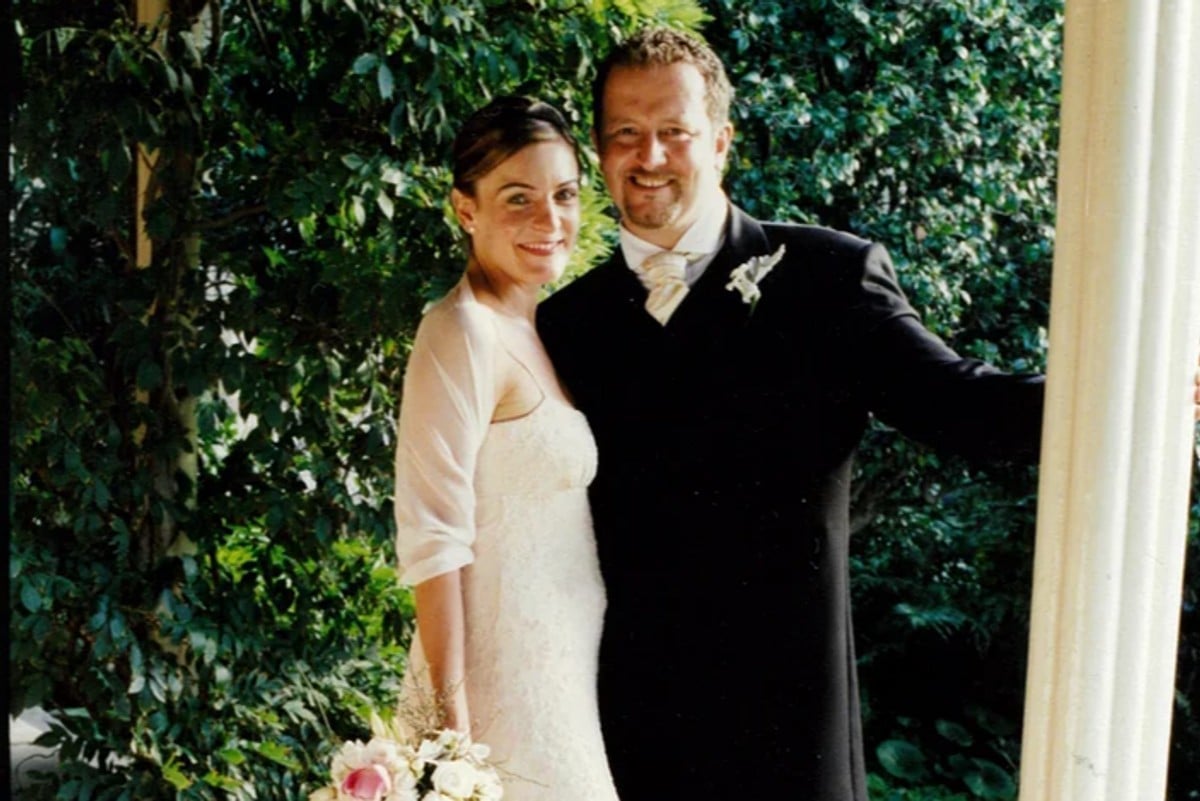
Our third child Orlando was only six months old when I noticed something wasn't quite right with my husband. Mauro's belly looked strange. Puffy and swollen, I initially thought he was just putting on weight but over time I became more and more concerned.
As our discussions bounced from worried wife tropes to the stereotypical 'she'll be right' Aussie attitude, three months had passed by the time I finally convinced him to go to the doctor. By then it was too late. Tests found a tumour in his kidney that had already metastasized and cancer was spreading throughout his body. That 'extra weight'? It was ascites, the body's fluid response to advanced cancer.
Over the next 15 months, I watched as the cancer slowly snatched my beautiful husband away.
I fell in love with Mauro 10 years prior in a club in Darlinghurst. He was unlike anyone I'd ever met. A gentle giant from Milan, he was a creative soul with long, corkscrew blonde curly hair.
We fell in love fast and lived life at full volume. We got married at the same time we launched our boutique branding agency. Nine months later our daughter Mya arrived, followed by our son Leio, four years later and Orlando shortly after that.
Managing all the spinning plates was its own brand of delightful, chaotic bliss until Mauro's cancer diagnosis upended our entire lives.
Orlando turned two in January 2011, and a few short weeks later, on 11 February, Mauro died.
Suddenly I was a single parent to three kids under seven, with a business to run solo.
Mauro and I hadn't put anything in place. We hadn't had any conversations about what would happen if he didn't survive his illness. We never discussed how I would raise our children once he was gone. We hadn't even talked about a will, let alone prepared one. As a result, I felt wholly unprepared for what I was about to face.


